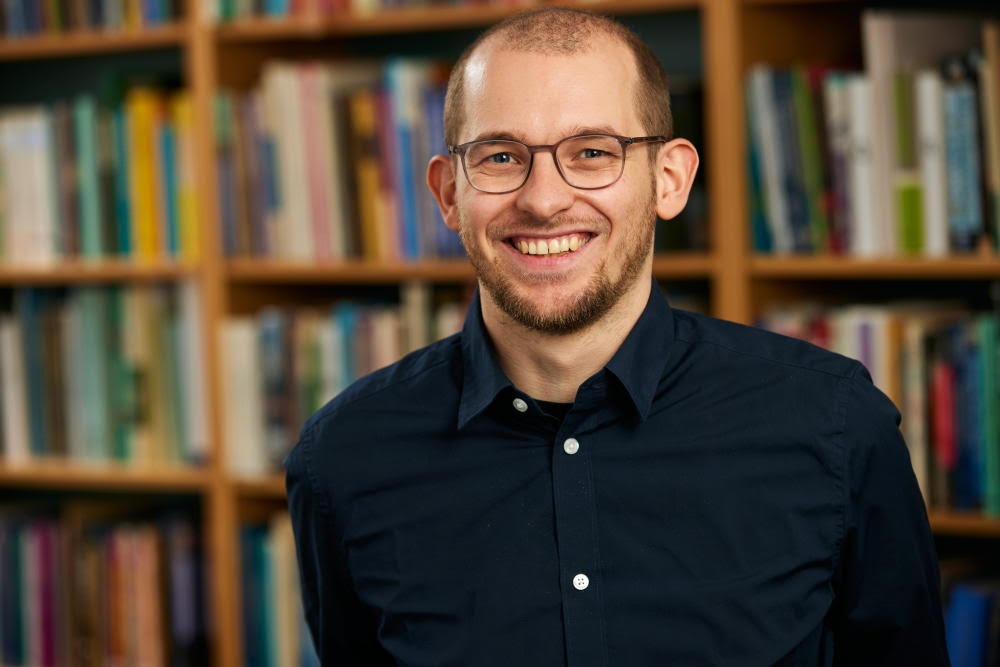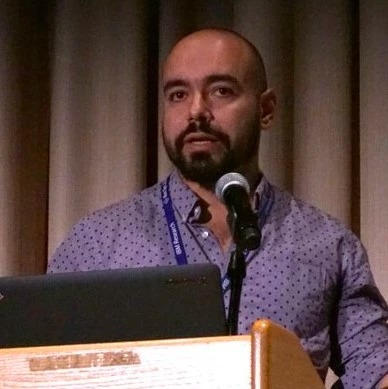Sep 2022 - Summer School
Summer School 2022

location_on Stockholm
Dates: 11th September - 17th September 2022
Lead Institution: KTH
Location: Stockholm
Venue: SCANDIC FORESTA
Agenda
|
Time
|
Sunday 9/11
|
Monday 9/12
|
Tuesday 9/13
|
Wednesday 9/14
|
Thursday 9/15
|
Friday 9/16
|
Saturday 9/17
|
|
8:00
-
9:00
|
Arrival
|
Breakfast
8:45 Welcome and intro
|
Breakfast
|
Breakfast
|
Breakfast
|
Breakfast
|
Breakfast
|
|
9:00
-
10:00
|
Keynote 1:
Nikos Laoutaris, IMDEA, Spain
|
Keynote 2: Ricardo Baeza-Yates, Northeastern University, USA
|
Keynote 3:
Ingmar Weber, QCRI, Qatar
|
Keynote 4:
MIT, USA
|
WS Keynote:
Uppsala University,
Sweden
|
checkout
|
|
|
10:00
-
10:30
|
Break
|
Break
|
Break
|
Break
|
Break
|
|
|
|
10:30 - 12:30
|
Marie Curie Fellow Presentations
|
Tutorial on "Opinion Formation in Social Networks: Models and Computational Problems" (Part 2) by Stefan Neumann
|
Tutorial on "Data Democratisation with Deep Learning" (Part 2) by Georgia Koutrika
|
Tutorial on "Recommender Systems" (Part 2) by Flavian Vasile
|
"Introduction to Conformal Prediction" by Lars Carlsson, Royal Holloway, University of London
|
|
|
|
12:30
-
14:00
|
Lunch
|
Lunch
|
Lunch
|
Lunch
|
Lunch
|
|
|
|
14:00 - 15:00
|
Tutorial on "Opinion Formation in Social Networks: Models and Computational Problems" (Part 1) by Aris Gionis et al. (KTH, Sweden)
|
Tutorial on "Data Democratisation with Deep Learning" (Part 1) by Georgia Koutrika (Athena Research Center, Greece)
|
Tutorial on "Recommender Systems" (Part 1) by Flavian Vasile, Criteo
|
Tutorial on "Assessing Research Impact by Leveraging Open Scholarly Knowledge Graphs" (Part 2) by Dimitris Sacharidis
|
Tutorial on " AI/Wearables/Predicting Sleep quality" (Part 2) by Joao Palotti et al.
|
|
|
|
15:00 - 15:30
|
Break
|
Break
|
Break
|
Break
|
Break
|
|
|
|
15:30 - 17:00
|
Marie Curie Fellow Poster Session
|
SOCIAL EVENT & Dinner in Stockholm
|
Tutorial on "Assessing Research Impact by Leveraging Open Scholarly Knowledge Graphs" (Part 1) by Dimitris Sacharidis (ULB, Belgium)
|
Tutorial on " AI/Wearables/Predicting Sleep quality" (Part 1) by Joao Palotti, (QCRI. Qatar)
|
|
|
|
|
17:00 - 18:00
|
|
|
|
|
|
|
|
|
19:30
-
20:30
|
Dinner
|
Dinner
|
Dinner
|
Dinner
|
Dinner
|
|
Keynote 1 - 'The arguments and the vision for a [Personal] Data Internetwork (PDI)' by Nikolaos Laoutaris
| Speaker | Affiliation | Talk | Mode | |
|---|---|---|---|---|
| Nikolaos Laoutaris | IMDEA Networks Institute | The arguments and the vision for a [Personal] Data Internetwork (PDI) |
|
|
| Abstract |
|---|
| In this talk I will argue for the creation of PDI, an overlay network over the existing Internet for connecting data owners, data marketplaces, and data consumers in a fair, trustworthy, and democratic manner that copies the paradigm of the Internet. PDI is motivated on the one hand from the thirst of many AI/ML algorithms of B2B and B2C services for training data, and on the other, from the need to tackle privacy matter proactively, via explicit control, instead of reactively, by attempting to tame tracking and surveillance. PDI is aligned with a plethora of initiatives and activities across industry, regulation, and research funding, including Gaia-X, International Data Spaces, the European Data Act, Digital Europe and Horizon Europe. I will explain how PDI can answer existential challenges for the new data economy such as how to price data, how to buy data, how to protect ownership rights upon data, and how to address the fragmentation vs. monopoly tussle on the data marketplace scene. I will also explain why technologies such as data watermarking, information centric networks, trusted execution, and federated learning, can contribute in the realisation of PDI in practice. |
| Bio |
|---|
| Nikolaos Laoutaris is a research professor at IMDEA Networks Institute in Madrid, and director of its Data Transparency Group (DTG). Prior to that he was director of data science at Eurecat and chief scientist of the Data Transparency Lab which he co-founded in 2014 during his 10 year tenure as a researcher in Telefonica. Before that, Nikolaos was a postdoc fellow at Harvard University, a Marie Curie postdoc fellow at Boston University, and a PhD student in computer science at the University of Athens. His main research interests include privacy, transparency, data protection, economics of networks and information, intelligent transportation, distributed systems, protocols, and network measurements. More information at: https://networks.imdea.org/team/research-groups/data-transparency-group/ and https://laoutaris.info/. |
Keynote 2 - 'Responsible AI' by Ricardo Baeza-Yates
| Speaker | Affiliation | Talk | Mode | |
|---|---|---|---|---|
| Ricardo Baeza-Yates | Institute for Experiential AI | Responsible AI |
|
|
| Abstract |
|---|
| In the first part we cover five current specific problems that motivate the needs of responsible AI: (1) discrimination (e.g., facial recognition, justice, sharing economy, language models); (2) phrenology (e.g., biometric based predictions); (3) unfair digital commerce (e.g., exposure and popularity bias); (4) stupid models (e.g., minimal adversarial AI) and (5) indiscriminate use of computing resources (e.g., large language models). These examples do have a personal bias but set the context for the second part where we address four challenges: (1) too many principles (e.g., principles vs. techniques), (2) cultural differences; (3) regulation and (4) our cognitive biases. We finish discussing what we can do to address these challenges in the near future to be able to develop responsible AI. |
| Bio |
|---|
| Ricardo Baeza-Yates is Director of Research at the Institute for Experiential AI of Northeastern University. Before, he was VP of Research at Yahoo Labs, based in Barcelona, Spain, and later in Sunnyvale, California, from 2006 to 2016. He is co-author of the best-seller Modern Information Retrieval textbook published by Addison-Wesley in 1999 and 2011 (2nd ed), that won the ASIST 2012 Book of the Year award. From 2002 to 2004 he was elected to the Board of Governors of the IEEE Computer Society and between 2012 and 2016 was elected for the ACM Council. In 2009 he was named ACM Fellow and in 2011 IEEE Fellow, among other awards and distinctions. He obtained a Ph.D. in CS from the University of Waterloo, Canada, in 1989, and his areas of expertise are web search and data mining, information retrieval, bias on AI, data science and algorithms in general. |
Keynote 3 - 'Big Data for Big Challenges: Data Analysis for Sustainable Development and Humanitarian Crises' by Ingmar Weber

| Speaker | Affiliation | Talk | Mode | |
|---|---|---|---|---|
| Ingmar Weber | Qatar Computing Research Institute (QCRI) | Big Data for Big Challenges: Data Analysis for Sustainable Development and Humanitarian Crises |
|
|
| Abstract |
|---|
| The world is facing seemingly insurmountable challenges, ranging from the climate crisis, and extreme poverty, to ongoing wars and conflicts. Intergovernmental organizations, such as the United Nations, were created to help more effectively tackle challenges that require coordinated global action. However, such responses require insight to be both targeted and effective. Such insights can be hard to obtain – especially when relevant and trustworthy data is missing. To address existing data gaps, non-traditional data sources, such as social media advertising data and satellite imagery, have been used to (i) monitor displacement and migration, (ii) track digital gender gaps, and (iii) map wealth inequalities. For example, changes in the distribution of cars detected in satellite imagery are indicative of internal displacement in Ukraine. And gender gaps in the number of female vs. male users targetable for advertising are strong indicators of internet access gender gaps. In this talk, I’ll give an overview of our work with international partners on using such data both for operational and policy purposes. |
| Bio |
|---|
| Dr. Ingmar Weber is currently the Research Director for Social Computing at the Qatar Computing Research Institute (QCRI). Recently, he has been awarded an Alexander von Humboldt Professorship in AI, Germany’s most valuable research award, and he’ll be joining Saarland University in fall 2022. His interdisciplinary research looks at what non-traditional data sources can tell us about the offline world and society at large. Working closely with sociologists and demographers he has pioneered the use of online advertising data for complementing official statistics on international migration, digital gender gaps, and poverty. His work is regularly featured in UN reports, and analyses performed by his team have been used to improve operations by UN agencies and NGOs ranging from Colombia to the Philippines. Prior to joining QCRI, Ingmar was a researcher at Yahoo Research Barcelona. As an undergraduate, he studied mathematics at the University of Cambridge before pursuing a Ph.D. at the Max-Planck Institute for Computer Science. |
Keynote 4 - 'Long ties: Formation, social contagion, and economic outcomes' by Dean Eckles
| Speaker | Affiliation | Talk | Mode | |
|---|---|---|---|---|
| Dean Eckles
|
MIT
|
Long ties: Formation, social contagion, and economic outcomes |
|
|
| Abstract |
|---|
|
Network structure can affect when, where, and how widely new ideas, products, and behaviors are adopted. Classic work in the social sciences has emphasized that "long ties" provide access to novel and advantageous information. In our empirical work, we show how particular life events (migration, education) are associated with forming long ties and how having long ties is associated with beneficial economic outcomes. Counties in the United States with more long ties (and more strong long ties) have higher incomes, lower unemployment, and more economic mobility, even after adjusting for other measures of social connections. These stylized facts are consistent with some models of contagion. In widely-used models of biological contagion, interventions that randomly rewire edges (generally making them "longer") accelerate spread. However, there are other models relevant to social contagion, such as those motivated by myopic best-response in games with strategic complements, in which individuals adopt if and only if the number of adopting neighbors exceeds a threshold. Recent work has argued that highly clustered, rather than random, networks facilitate spread of these "complex contagions". Here we show that minor modifications to this model, which make it more realistic, reverse this result: we allow very rare below-threshold adoption, i.e., rarely adoption occurs when there is only one adopting neighbor. In a version of "small world" networks, allowing adoptions below threshold to occur with order 1/√n probability — even only along some "short" cycle edges — is enough to ensure that random rewiring accelerates spread. Hypothetical interventions that randomly rewire existing edges or add random edges (versus adding "short", triad-closing edges) in hundreds of empirical social networks reduce time to spread. In summary, we provide an empirical and theoretical view of the outsized role of long ties in the spread of valuable information and behaviors, even when those behaviors spread via threshold-based contagions. This is joint work based on two papers: one on threshold-based contagions with Elchanan Mossel, M. Amin Rahimian, Subhabrata Sen, and one on formation of long ties and economic outcomes with Eaman Jahani, Samuel Fraiberger, and Michael Bailey. |
| Bio |
|---|
|
Dean Eckles is an Associate Professor of Marketing at MIT Sloan. His substantive research examines people’s interactions with and through communication technologies, especially how these technologies mediate, amplify, and direct social influence. This work sometimes requires or benefits from new analytical methods, so Eckles also works on applied statistics, design of field experiments, and causal inference. Prior to joining MIT, he was a scientist at Facebook, where he worked on many product areas and analytical methods, including News Feed, messaging, advertising, tools for randomized experiments, and survey methods. Eckles previously worked in research at Nokia and Yahoo. Eckles received his BA in philosophy, a BS and MS in cognitive science, an MS in statistics, and a PhD in communication, all from Stanford University. |
Tutorial on 'Opinion Formation in Social Networks: Models and Computational Problems' - Aristides Gionis and Stefan Neumann


| Speaker | Affiliation | Talk | Mode | |
|---|---|---|---|---|
| Aristides Gionis | KTH Royal Institute of Technology |
Opinion Formation in Social Networks: Models and Computational Problems |
|
|
| Stefan Neumann | KTH Royal Institute of Technology |
|
|
|
| Abstract |
|---|
| Social networks are widely used nowadays to engage in conversations about a variety of topics. Over time, these discussions can have a significant impact on people’s opinions. Works in sociology and other areas have provided mathematical models to simulate such opinion formation processes, and in the past decade it has become popular to consider the computational aspects of these models, motivated by the widespread use of online social networks. The goal is to obtain a better understanding of real-world phenomena, such as increasing polarization and filter bubbles. In this tutorial we aim to provide an overview of the opinion formation literature. We will present the most important opinion models that are studied in this context, and will discuss some of the computational challenges that have arisen recently. We will also reflect on emerging applications and directions for future work. |
| Bio |
|---|
| Aristides Gionis is a WASP professor in KTH Royal Institute of Technology and adjunct professor in Aalto University. He has been a fellow in the ISI Foundation, Turin, and a visiting professor in the University of Rome. His previous appointment was with Yahoo! Research, Barcelona. He obtained his PhD in 2003 from Stanford University. He is currently serving as an action editor in the Data Management and Knowledge Discovery journal (DMKD) and an associate editor in the ACM Transactions on the Web (TWEB). He has contributed in different areas of data science, such as algorithmic data analysis, web mining, social-media analysis, data clustering, and privacy-preserving data mining.
Stefan Neumann is a postdoc at KTH Royal Institute of Technology in the group of Aris Gionis. He is broadly interested in social network analysis and graph algorithms. Stefan received his Ph.D. from University Vienna under the supervision of Monika Henzinger. During that time, he also visited Eli Upfal at Brown University. His Ph.D. thesis won the Heinz Zemanek Award from the Austrian Computer Society and an Award of Excellence from the Austrian federal government. Stefan received his Master’s degree from Saarland University and Max Planck Institute for Informatics. |
Data Democratisation with Deep Learning: An Analysis of Text-to-SQL Systems - Georgia Koutrika
| Speaker | Affiliation | Talk | Mode | |
|---|---|---|---|---|
| Georgia Koutrika | Athena Research Center | Data Democratisation with Deep Learning: An Analysis of Text-to-SQL Systems |
|
|
| Abstract |
|---|
| The Web has democratized access to knowledge, and search engines have arguably played a paramount role in this by enabling users to search for information in web pages using keywords or simple natural language questions. However, a vast amount of data used in a wide range of tasks, from business operations, medical and scientific research to activities in our everyday lives, lives in relational databases. These remain inaccessible to most users that are not familiar with a low-level query language such as SQL for formulating their queries. During the past decades, there has been an increasing research focus on text-to-SQL systems that enable users to query data using natural language. The recent advances in deep neural networks along with the creation of two large datasets made for training text-to-SQL systems have led to an explosion of recent text-to-SQL efforts, shaping a very exciting and fast-paced research field. In this tutorial, we dive into the text-to- SQL field. First, we will introduce the text-to-SQL problem and explain its challenges. Then, we will discuss about available benchmarks and explain their advantages and shortcomings. We will zoom in on the recent advances of deep learning techniques for text-to-SQL translation. Finally, we will discuss open challenges and research opportunities. |
| Bio |
|---|
| Georgia Koutrika is Research Director at Athena Research Center in Greece. She has more than 15 years of experience in multiple roles at HP Labs, IBM Almaden, and Stanford. She has received a PhD and a diploma in Computer Science from the Department of Informatics and Telecommunications, University of Athens in Greece. Her work focuses on natural language data interfaces, data exploration, recommendations, and data analytics, and has been incorporated in commercial products, described in 14 granted patents and 26 patent applications in the US and worldwide, and published in more than 100 papers in top-tier conferences and journals. |
Technological Advances in Real-World Recommendation - Flavian Vasile

| Speaker | Affiliation | Talk | Mode | |
|---|---|---|---|---|
| Flavian Vasile | Criteo AI Lab | Technological Advances in Real-World Recommendation | f.vasile@criteo.com |
|
| Abstract |
|---|
|
This tutorial covers the main latest advances in recommendation systems, namely the recent focus in offline-online metrics alignment for Recommendation and the introduction of deep leaning techniques for user and item representation coupled with maximum inner-product search (MIPS) for fast retrieval. The tutorial assumes a good understanding of linear algebra and classical Machine Learning techniques and aims to bring insights to the audience on the real-world problems faced by recommendation systems practitioners. The tutorial will be divided into two parts, each containing a theoretical section and a practical session that illustrates the concepts with simple coding examples. |
| Bio |
|---|
|
Flavian Vasile is part of the Criteo AI Lab where he works as Principal Scientist. His main focus being on the development of Deep Learning-based Recommendation Systems and on introducing aspects of Causal Inference to Recommendation. His current research interests include Deep Sequential Models for Recommendation and understanding Recommendation as a decision-making system with reward uncertainty. Among his recent research publications, the work on Causal Embeddings for Recommendation received the best paper award at RecSys ‘18 and he co-organized the ‘18–‘20 REVEAL Workshop series in conjunction with ACM RecSys. |
Assessing Research Impact by Leveraging Open Scholarly Knowledge Graphs - Dimitris Sacharidis
| Speaker | Affiliation | Talk | Mode | |
|---|---|---|---|---|
| Dimitris Sacharidis | Athena Research Center | Assessing Research Impact by Leveraging Open Scholarly Knowledge Graphs |
|
|
| Abstract |
|---|
| Nowadays, the vast amount of existing published research works creates major obstacles regarding the traditional knowledge discovery required by common research processes and other relevant tasks. However, at the same time, the increased popularity of the Open Science movement, makes large amounts of scholarly metadata available through open Scholarly Knowledge Graphs (SKGs), paving the way for reliable research impact assessment processes, that can alleviate the aforementioned issue. The main objective of the tutorial is to inform and educate the audience about the opportunities and challenges that open SKGs create in the field of research impact assessment, presenting the respective state-of-the-art and highlighting common pitfalls. |
| Bio |
|---|
| Dimitris Sacharidis is a Marie Curie Postdoctoral Fellow at the Information Management Systems Institute (IMSI) and at the Hong Kong University of Science and Technology (HKUST). He received his BSc in Electrical and Computer Engineering from the National Technical University of Athens (NTUA) in 2001, and his MSc in Computer Science from the University of Southern California (USC) in 2004. In 2008 he obtained the PhD degree in Electrical and Computer Engineering from NTUA under the supervision of Prof. T. Sellis. During 2008-2009, he was a Visiting Lecturer at the Department of Computer Science and Technology in the University of Peloponnese. His research interests include data streams, privacy, security, preferences and ranking in data management applications. |
|
|